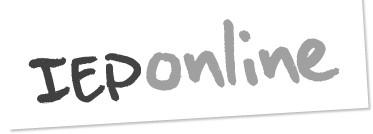Onslow College – transcript 1
[On the screen]
The updated Individual Education Plans (IEP) guidelines were published in September 2011.
In this clip we hear from Peter Leggat, Principal at Onslow College about how his secondary school approaches inclusiveness.
Narrator:
What does it mean to be an inclusive environment?
Peter Leggat:
I think it’s very much that all students are part of the school, and it doesn’t matter whether they be learning support, International, or just a student from down the road. So, the inclusive nature is that we don’t have individuals units or anything that the students are all there, they’re altogether, so they develop that awareness of each other they develop that understanding of each other’s rights, and sometimes difficulties and sometimes strengths, and appreciate people for what they are.
We have a little catch cry here about that it’s more about community than conformity. And I think that to me is something that really sums up the Onslow College model, is that we are a community. So when I walk around the school and I see the learning support students, they are there amongst, they are mixing with everyone else, and that’s just a way you want it. It’s not like they are kept separate.
Narrator:
What’s the vision for learning support students at Onslow?
Peter:
Given the increased number of learning support students that we are now attracting, our model at the moment is that we have a highly successful Learning Support department that supports students through programs ASDAN, IEPs et cetera, going into the normal classroom situation with teacher aide help.
The next movement that we need to make is to further up-skill the classroom teacher to be better able to provide programmes that meet the needs of all the students. So we have a huge emphasis on differentiation.
But it is that the teacher is being able to provide that programme because we’re not always going to be able to have that same level of teacher aide support moving around with the student, but we want those students in the normal class situation working at a level which is appropriate for them.
So as I said, that’s about teachers up-skilling.
We have a thing about teachers knowing their learners, and so it’s a matter of having data, it’s about having strategies, it’s identifying what does and doesn’t work well, and sharing that best practice around the staff so that we are inclusive and we are all playing our part in that inclusive role.
Ideally you’d almost like to get to the stage that you didn’t need a Learning Support department as such, but you had the whole school, because the whole school is about learning.
Narrator:
What are the challenges?
Peter:
It’s incredibly daunting, and what we are finding is, one is cost to provide the level of support that we firmly believe that our students need and deserve in order to make that difference.
We’re having to find that money ourselves from our own ability to generate funds.
But the other thing that I think is daunting about it is that we’re asking already heavily committed staff who are doing curriculum development, NCEA realignment, and everything else to take on another aspect, and so for some staff it’s quite scary.
I think once we break down that initial – and I think the scare is more about “Am I doing it right, am I giving these students what they want, what they deserve?”, and that’s where our staff were amazing in terms of their commitment to the kids, and so they are very critical of themselves.
I suppose for me, I’ve only been here for two years so I can’t really take any of the real credit or talk about the gradual process, but the IEP process that we’re doing now is involving all of the teachers who are potentially involved with that student rather than it being something which is negotiated by the parent, the learning support staff and then handed to teachers.
So I think that’s important, and that what we need to do more of so that they classroom teachers have input into what they can offer in the IEP. And that’s done in that IEP discussion negotiation, so they’re coming out with the best option, the best outcome for the student.
« Back to Onslow College

